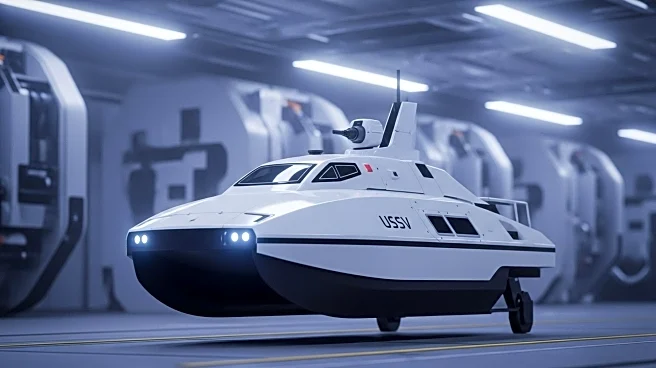What is the story about?
What's Happening?
ABS has awarded classification to the Saildrone Surveyor, a fully autonomous deepwater unmanned surface vehicle (USV). The Surveyor, measuring 20 meters in length, is capable of unmanned operations across global oceans, marking a significant advancement in maritime technology. Saildrone, the company behind the Surveyor, specializes in maritime security, ocean mapping, and meteorological data collection using autonomous assets. The ABS class certification indicates that Saildrone's USVs are mature, safe, and ready for large-scale deployment. This achievement follows the certification of the smaller 10-meter Voyager USV in 2023, designed for coastal surveillance. The Surveyor can undertake long-endurance missions, collecting deep-ocean bathymetry and performing various maritime domain awareness tasks. ABS collaborates with industry and government regulators to design and implement advanced remote-control and autonomous technology.
Why It's Important?
The certification of the Saildrone Surveyor by ABS represents a pivotal moment in the evolution of autonomous maritime technology. It underscores the growing importance of unmanned systems in enhancing maritime security and environmental monitoring. The ability to conduct long-endurance missions without human intervention can significantly reduce operational costs and increase efficiency in oceanographic research and surveillance. This development is likely to benefit industries involved in ocean mapping, climate research, and maritime security, providing them with advanced tools for data collection and analysis. The certification also sets a precedent for future innovations in autonomous maritime technology, potentially influencing regulatory standards and industry practices.
What's Next?
With the ABS certification, Saildrone is poised to expand the deployment of its USVs across various maritime sectors. The company may seek partnerships with government agencies and private enterprises to leverage the Surveyor's capabilities for oceanographic research, environmental monitoring, and maritime security operations. As the technology gains acceptance, there could be increased investment in developing more sophisticated autonomous systems, further advancing the field. Stakeholders in the maritime industry, including regulators and environmental organizations, are likely to monitor the deployment and performance of these USVs closely, potentially influencing future policy and regulatory frameworks.















